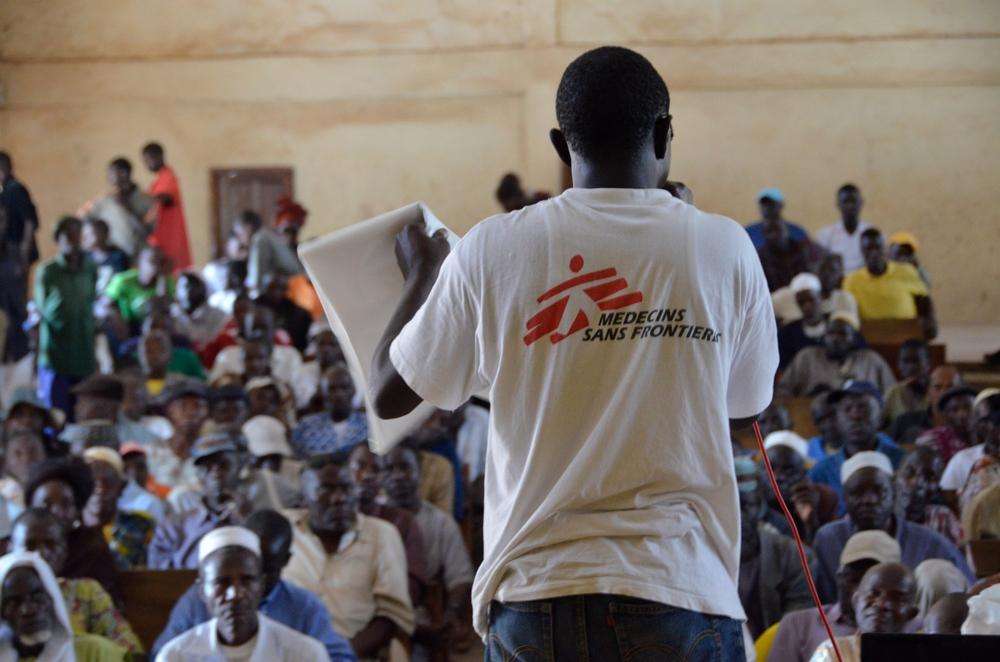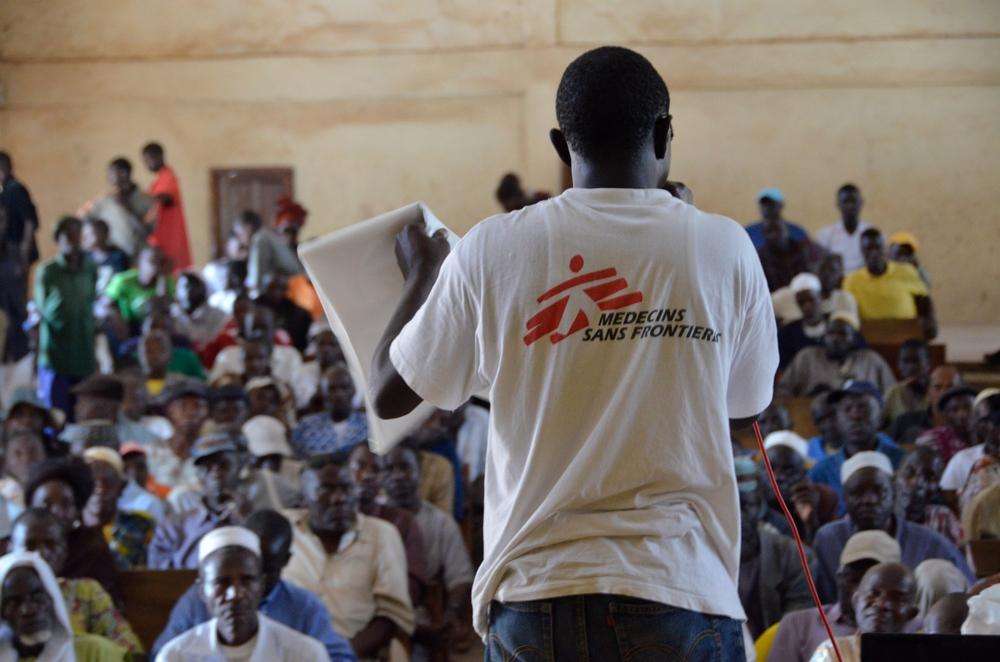Creating awareness is a key component of the response to an Ebola epidemic. It is impossible to eradicate the disease without the population’s support and changes in behavior.
In Guinea, dozens of Doctors Without Borders/Médecins Sans Frontières (MSF) health promoters have been crisscrossing the affected regions to raise awareness about the disease and how it is transmitted, encourage people with suspicious symptoms to go to treatment centers, and explain the importance of safe burial. However, lack of knowledge and fear of the disease are significant obstacles, and the teams sometimes face hostility. Here, MSF health promotion coordinator Maria Cristina Manca explains the challenges her team faced in Guinea.
How are health promotion activities organized?
The first priority is to analyze the context before planning our activities. Among other tasks, this involves understanding the situation and gathering information on life in the towns and villages, the languages spoken, population movements, and the authorities.
For example, Conakry is characterized by communes, sectors, neighborhoods, and families. There are key people within each entity. We have to identify both the formal and informal authorities so that we can reach deeply into the population. We do that through meetings and discussions.
We also hire local staff to train the teams. Most of them have studied the social sciences and, preferably, have experience in this kind of awareness campaign. [The teams] may also include recovered patients, who are in the best position to share their experience. But, above all, they must be empathic, open, and committed. Our teams thus include engineers as well as people who don’t have extensive education. The Conakry team alone totals 27 people today.
We always begin with the authorities when we are preparing to launch our activities. We explain what Ebola is and we discuss our work. We show a documentary about the treatment center. Next, we ask for permission to work in the neighborhoods. We then organize conversations in bars, hair salons, and similar locations. We draw up a list with the first questions asked, because they are critical.
When we get out into the field, our objective is to provide information on Ebola. But to create awareness within a population takes more than just carrying our messages. We have to listen. This means being flexible so that we are always prepared to adapt our approach. We can modify our messages based on the questions that community members ask, rumors that may be circulating, or people’s concerns. We do this on a daily basis, based on the feedback that our teams provide.
What kind of questions do the teams receive?
Questions are not limited to the disease itself. People ask if they can see the deceased at the centers or visit people who are ill. The main questions deal with what we do at the centers. Various rumors circulate—that Europeans brought this disease, that we carve people up at the centers to remove their organs, or that we take their blood to send it to Europe. There is a lot of confusion.
We have made the most progress in the Guéckédou region, where the epidemic began. Our messages are more welcome and better accepted there. It’s harder in Conakry and other regions. Each neighborhood and sector is its own universe. In some places, we are very welcome and people want us to be there. But in others, we’ve had stones thrown at us.
This often happens in locations where problems already exist, such as intergenerational conflicts between youth and leaders. That’s why it is so important to understand the context. Then the job is to identify the sources of the rumors and the leaders who can convince the people who are the source of the hostility. We have had to return to some areas four or five times before people would open their door to us.
It’s also important to work with local health promoters who know the language and codes. But some of them are considered traitors and are stigmatized. The same is true for people who have recovered from Ebola. Some accuse them of not having been sick at all and having been bought off. Many of our health promoters thus have to hide the fact that they are working with us.
You can understand the fear. Ebola was unheard of in Guinea and there are still many unknowns about this disease, which had not been studied much until now. Unlike in the case of cholera, for example, we don’t have simple answers for every question.
How do you evaluate the success of this kind of awareness-raising campaign?
When we are welcomed, when people receive accurate information, when they invite us into their neighborhood. It’s clear that patients have come to our centers thanks to the work of our teams. People volunteer to go door-to-door to deliver our messages. That’s success.
We are also working hard on this issue of stigmatization of people who have recovered. In Guéckédou, a young man who recovered left the center the night before an exam to finish up his academic program. He had a certificate confirming that he had recovered, but his professors still didn’t want him to be there. We went to talk to them and convince them that he no longer represented any danger. He finished first in his class!
MSF’s West Africa Ebola response started in March 2014 and includes activities in Guinea, Liberia, Mali, and Sierra Leone. MSF currently employs 302 international and around 4,000 national locally hired staff in the region.





